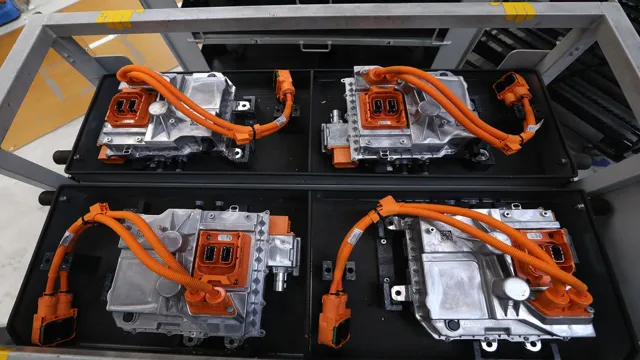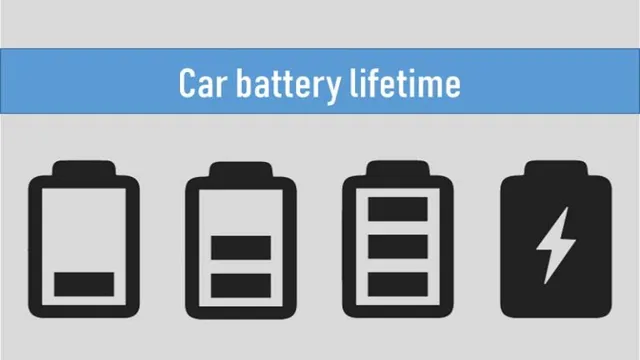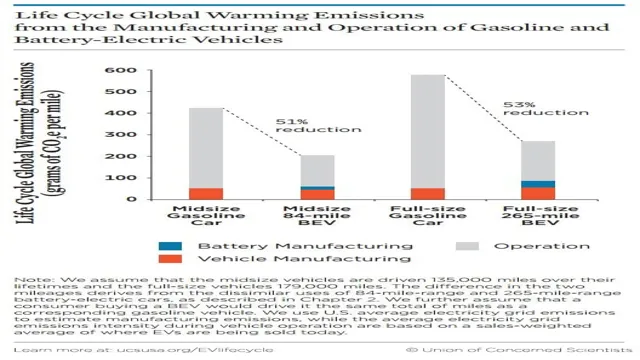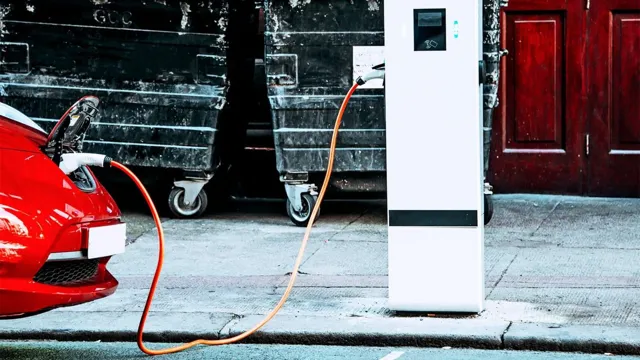Revolutionary Improvements in Electric Car Battery Technology: Powering Up the Future
Electric cars have gained immense popularity over recent years due to their eco-friendliness and efficiency. However, one major area of concern has been the battery life and durability of these cars. This is where research and innovation in the field of electric car batteries come into play.
Improving electric car batteries is vital for the growth of the electric vehicle industry. The good news is that many companies and researchers are taking significant steps towards enhancing the battery technology of electric cars. In this blog, we dive into the latest developments in improving electric car batteries and how it can benefit the everyday driver.
Current State of Electric Car Batteries
Electric car batteries have come a long way in recent years, with significant improvements being made in terms of energy density, charging time, and overall performance. In fact, today’s electric car batteries are more powerful and efficient than ever before. Thanks to advances in materials science and engineering, manufacturers are now able to produce batteries that are smaller, lighter, and more durable than ever before.
For example, Tesla’s latest battery pack boasts a range of over 400 miles on a single charge, a significant improvement over previous models. Additionally, charging times have been reduced, with some models able to charge up to 80% in less than an hour. As technology continues to improve, experts predict that electric vehicle batteries will only become more efficient and cost-effective, paving the way for a future powered by clean, renewable energy.
Battery Capacity and Range Limits
The current state of electric car batteries has come a long way in terms of battery capacity and range. With advancements in battery technology over the last few years, electric vehicle owners can now enjoy a longer drive range and a more extended battery life. However, despite these developments, there is still a limit to the range that electric vehicles can travel, and this is dependent on the capacity of the batteries.
The battery’s capacity limits the amount of energy that can be stored in the battery, ultimately affecting the vehicle’s driving range. When an electric vehicle’s battery nears its capacity limit, the range of the car reduces and eventually needs to be recharged. Despite this, research shows that battery technology is rapidly evolving, and manufacturers are working on creating batteries that can hold more charge and can travel longer distances.

Charging Time and Access
When it comes to charging time and access for electric cars, a lot depends on the state of the batteries. As of right now, the average charging time for an electric vehicle is still longer than refueling a traditional car with gas. However, this is steadily improving as battery technology advances.
Currently, most electric cars can achieve an 80% charge in 30 minutes or less at DC fast-charging stations. Additionally, the growing number of public charging stations, as well as the ability to charge at home, makes access to charging easier than ever. Despite these improvements, some people may still have concerns about running out of power during longer trips.
But with the increasing range of electric vehicles, particularly with the newer models, that fear is quickly becoming a thing of the past. Overall, while there is still progress to be made, the future looks bright for electric car batteries and charging.
Recent Battery Technology Advancements
Electric car battery technology has come a long way in recent years, making electric vehicles more efficient, reliable, and practical for everyday use. Improvements in battery chemistry, design, and manufacturing have led to increased energy density, longer-range, and faster charging times. Lithium-ion batteries, which are currently the most widely used in electric cars, have become smaller, lighter, and more powerful thanks to innovations in electrode materials and cell packaging.
Solid-state batteries, which offer even higher energy density and faster charging times, are also on the horizon and could revolutionize the electric vehicle industry. In addition, wireless charging and V2G (vehicle-to-grid) technology are making it easier and more convenient for electric car owners to charge up and sell excess energy back to the grid. With these advancements in electric car battery technology, the future looks bright for the electric vehicle industry and its potential to reduce greenhouse gas emissions and improve air quality.
Solid-State Batteries
Solid-State Batteries Recent advancements in battery technology have paved the way for solid-state batteries to become a promising alternative to traditional lithium-ion batteries. Solid-state batteries use a solid electrolyte instead of a liquid electrolyte, which offers several advantages including increased safety, higher energy density, and the potential for faster charging times. These batteries also have a longer lifespan and can withstand harsher environments, making them an attractive option for use in electric vehicles and other applications that require reliable and high-performing batteries.
While solid-state batteries are still in the early stages of development, companies like Toyota, BMW, and Samsung are investing heavily in research and development to bring this technology to the mainstream market. As we continue to move towards a greener and more sustainable future, solid-state batteries may play a crucial role in powering the devices and machines we depend on every day.
Graphene Batteries
Graphene batteries are an exciting new development in the world of energy technology that have the potential to revolutionize the way we power our devices. Graphene is an incredibly strong and lightweight material that has the ability to conduct electricity and store energy at a high density. This makes it an ideal ingredient for batteries that are both powerful and efficient.
One of the main advantages of graphene batteries is their ability to charge quickly without overheating. Additionally, they have a longer lifespan and can be recharged thousands of times, making them a more sustainable option compared to traditional batteries that end up in landfills. As technology continues to advance, we can anticipate that graphene batteries will become more widely available, leading to a greener and more sustainable future powered by this super material.
Lithium-Sulfur Batteries
Lithium-sulfur batteries have been making waves in the battery technology world, with recent advancements showing great potential for the future. These batteries have a higher energy density than traditional lithium-ion batteries, meaning they can store more energy in the same amount of space. They also have the potential to be much cheaper, as sulfur is abundant and low-cost.
However, there have been some challenges with the technology, such as instability and a shorter lifespan than traditional batteries. Despite these challenges, researchers are working hard to improve the stability and lifespan of lithium-sulfur batteries. With continued advancements, these batteries could revolutionize the energy storage industry and make renewable energy more accessible and affordable than ever before.
Practical Applications of Battery Improvements
Electric car battery improvements have been revolutionizing the automotive industry lately. As battery technology advances, so does the electric car’s range and performance. These batteries are now more powerful and efficient, allowing electric cars to travel further and faster.
Not only that, the improved batteries can be charged quicker than before with fast-charging technology. This technology has made electric cars more practical and accessible to the masses by reducing the time it takes to charge an electric vehicle. With these battery improvements, we can look forward to expanding the possibilities for electric cars and reducing our dependence on non-renewable energy sources.
As demand for sustainable energy solutions continues to grow, electric car battery technology will remain a vital component in shaping the future of transportation.
Longer Range and Faster Charging Times
The advancements in battery technology have brought us closer to practical and reliable electric vehicles that can travel longer distances on a single charge and charge times that won’t put a damper on our daily routine. With the improvements, electric vehicles can travel up to 300 miles, and charging has become considerably quicker. A few years ago, charging an EV could take up to 10 hours, but today, we’ve seen substantial improvements with some models being able to charge in just 30 minutes.
These advancements have opened up new possibilities for the industry, including the electrification of fleet vehicles like delivery trucks and buses. With electric vehicles garnering more attention, it’s only a matter of time before these practical applications become a reality.
Affordability and Adoption
As battery technology continues to improve, it’s important to consider how it can lead to more affordable and widespread adoption in practical applications. For example, electric vehicles have often been criticized for their high upfront costs, but advancements in battery technology could potentially bring those costs down. Additionally, improved battery capacity and efficiency could make electric vehicles more practical for longer distances and make charging times faster.
In residential and commercial settings, battery storage systems could also become more financially feasible as the cost per kilowatt-hour decreases. Ultimately, the affordability and adoption of battery technology will heavily rely on the research and development that drives improvements in the industry.
Future Outlook for Electric Car Batteries
Electric car battery technology has come a long way in recent years and the future outlook is promising. Improvements being made to electric car batteries are expected to increase their efficiency, lifespan, and decrease recharge times. Some of the most notable advancements in electric car battery technology include the use of solid-state batteries, which offer higher energy density and faster charging times than current lithium-ion batteries.
Additionally, research is being done on the use of silicon and lithium-sulfur in lithium-ion batteries, which can increase energy density by up to five times. These improvements are expected to greatly increase the range and usability of electric cars, ultimately making them a great alternative to traditional gasoline cars. The electric car battery market is expected to continue growing rapidly due to the improvements in technology, environmental concerns, and government support.
Overall, the future looks bright for electric car batteries and their advancements will undoubtedly have a positive impact on the environment and the automotive industry.
Conclusion
In conclusion, electric car battery improvements have the potential to revolutionize the automotive industry and usher in a new era of sustainable transportation. As battery technology continues to advance, we can expect longer ranges, shorter charging times, and lower costs, making electric cars more accessible and practical for the average consumer. With the help of innovative companies and forward-thinking individuals, the future of electric cars is bright.
So let’s all charge up and drive into a cleaner and greener tomorrow!”
FAQs
What are the recent improvements made in electric car batteries?
The recent improvements in electric car batteries include increased energy density, longer lifespan, quicker charging times, and decreased costs.
How has the improvement in electric car battery technology impacted the electric car industry?
The improvement in electric car battery technology has led to increased adoption of electric cars, longer driving ranges, and reduced charging times, which have boosted the growth of the electric car industry.
What are the challenges in improving the electric car battery technology?
The challenges in improving the electric car battery technology include balancing the energy density with safety, reducing the cost of production, and addressing the issue of limited resource availability.
How do manufacturers ensure the safety and longevity of electric car batteries?
Manufacturers ensure the safety and longevity of electric car batteries by implementing various safety features such as thermal management systems and battery management systems, and by conducting rigorous testing and quality control procedures during the production process.






